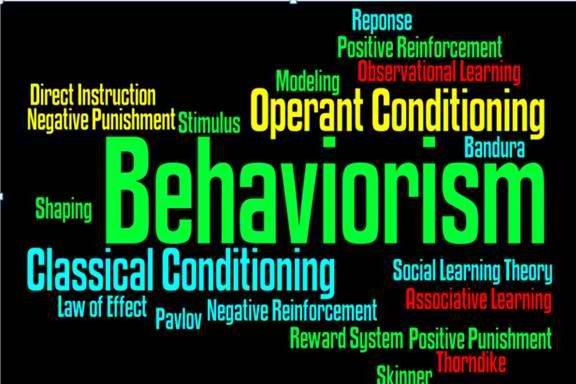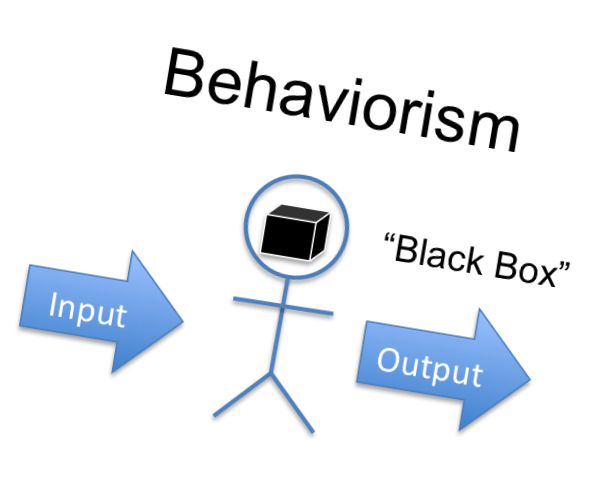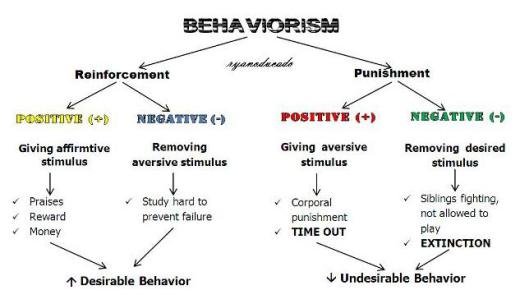Understanding The Impacts of Behaviorism To Our Personalities

Image Source
Behaviorism, also called behavioral psychology, is a hypothesis of learning in view of all practices are gained through conditioning. Conditioning happens through collaboration with the earth. Behaviorists trust that our reactions to natural boosts shape our activities. As indicated by this school of thought, conduct can be contemplated in a deliberate and perceptible way paying little respect to interior mental states.
Just noticeable conduct ought to be considered—discernments, feelings, and inclinations are unreasonably subjective. Strict behaviorists trusted that any individual can possibly be prepared to play out any undertaking, paying little heed to hereditary foundation, identity characteristics, and inward contemplations. It just requires the correct conditioning.
A Brief History
Behaviorism was formally settled with the 1913 distribution of John B. Watson's exemplary paper, "Psychology as the Behaviorist Views It." It is best summed up by the accompanying quote from Watson, who is regularly viewed as the "father" of behaviorism:
"Give me twelve solid newborn children, very much framed, and my own particular determined world to acquire them up and I'll ensure to take any one indiscriminately and prepare him to end up noticeably any sort of pro I may choose—specialist, legal counselor, craftsman, shipper boss and, yes, even homeless person man and hoodlum, paying little respect to his gifts, inclinations, propensities, capacities, occupations, and race of his progenitors."
Strict behaviorists trust that all practices are the consequence of experience. Any individual, paying little mind to his or her experience, can be prepared to act in a specific way given the correct conditioning.
From around 1920 through the mid-1950s, behaviorism developed to end up plainly the prevailing school of thought in psychology. Some recommend that the prominence of behavioral psychology became out of the longing to set up psychology as a goal and quantifiable science. Scientists were occupied with making speculations that could be plainly portrayed and exactly measured, additionally used to make commitments that may have an impact on the texture of ordinary human lives.

Image Source
There are two noteworthy sorts of conditioning:
Classical conditioning is a procedure every now and again utilized as a part of behavioral preparing in which an unbiased boost is matched with an actually happening jolt. In the long run, the impartial jolt comes to inspire an indistinguishable reaction from the actually happening boost, even without the normally happening boost introducing itself. The related boost is presently known as the molded jolt and the scholarly conduct is known as the adapted reaction.
Operant conditioning is a technique for discovering that happens through fortifications and disciplines. Through operant conditioning, an affiliation is made between a conduct and a result for that conduct. At the point when an attractive outcome takes after an activity, the conduct turns out to probably happen again later on. Reactions taken after by unfavorable results, then again, turn out to be more averse to happen again later on.
Important things to know about behaviorism
Learning can happen through affiliations. The classical conditioning process works by building up a relationship between an ecological boost and a normally happening jolt. In physiologist Ivan Pavlov's exemplary trials, pooches related the introduction of nourishment with the sound of a ringer, at initially, and afterward seeing a lab associate's white coat. Inevitably, the laboratory garment alone inspired a salivation reaction from the canines.
Different variables can impact the classical conditioning process. Amid the initial segment of the classical conditioning process, known as procurement, a reaction is built up and reinforced. Variables, for example, the unmistakable quality of the boosts and the planning of introduction can assume a vital part in how rapidly an affiliation is shaped.
At the point when an affiliation vanishes, this is known as eradication, making the conduct debilitate progressively or vanish. Variables, for example, the quality of the first reaction can assume a part in how rapidly eradication happens. The more drawn out a reaction has been molded, for instance, the more it might take for it to end up plainly wiped out.
Learning can likewise happen through prizes and disciplines. Behaviorist B.F. Skinner depicted operant conditioning as the procedure in which learning can happen through support and discipline. All the more particularly, by shaping a relationship between a specific conduct and the outcomes of that conduct, you learn. For instance, if a parent rewards their tyke with acclaim each time they get their toys, the coveted conduct is consistenly fortified. Accordingly, the youngster will turn out to probably tidy up wrecks.
Reinforcement timetables are vital in operant conditioning. This procedure appears to be genuinely straight forward—basically watch a conduct and after that offer a reward or discipline. Notwithstanding, Skinner found that the planning of these prizes and disciplines has a vital impact on how rapidly another conduct is obtained and the quality of the comparing reaction.

Image Source
Persistent fortification includes remunerating each and every occurrence of a conduct. It is regularly used toward the start of the operant conditioning process. Be that as it may, as the conduct is found out, the calendar may change to one of an incomplete fortification. This includes offering a reward after various reactions or after a timeframe has passed. Some of the time, halfway support happens on a steady or settled calendar. In different cases, a variable and eccentric number of reactions or time must happen before the fortification is conveyed.
Several masterminds impacted behavioral psychology. Notwithstanding those as of now said, there are various conspicuous scholars and analysts who left a permanent check on behavioral psychology. Among these are Edward Thorndike, a spearheading clinician who depicted the law of impact, and Clark Hull, who proposed the drive hypothesis of learning.
There are various remedial procedures established in behavioral psychology. In spite of the fact that behavioral psychology accepted to a greater extent a foundation position after 1950, its standards still stay essential. Indeed, even today, conduct investigation is regularly utilized as a restorative method to help youngsters with a mental imbalance and formative postponements obtain new aptitudes. It much of the time includes procedures, for example, forming and binding. Other behavioral treatment strategies incorporate repugnance treatment, deliberate desensitization, token economies, demonstrating, and possibility administration.
Behavioral psychology has a few qualities. Behaviorism depends on perceptible practices, so it is now and again less demanding to evaluate and gather information when directing examination. Powerful remedial methods, for example, escalated behavioral intercession, conduct examination, token economies, and discrete trial preparing are altogether established in behaviorism. These methodologies are regularly extremely valuable in changing maladaptive or hurtful practices in both kids and grown-ups.
It likewise has a few shortcomings. Numerous pundits contend that behaviorism is a one-dimensional way to deal with understanding human conduct. They propose that behavioral speculations don't represent choice and inward impacts, for example, states of mind, musings, and emotions. Additionally, it doesn't represent different sorts of discovering that happens without the utilization of fortification and discipline. In addition, individuals and creatures can adjust their conduct when new data is presented regardless of the possibility that that conduct was set up through fortification.
Behavioral psychology contrasts from different points of view. One of the significant advantages of behaviorism is that it enabled analysts to examine detectable conduct in a logical and deliberate way. In any case, numerous scholars trusted it missed the mark by disregarding some critical impacts on conduct. Freud, for instance, felt that behaviorism bombed by not representing the oblivious personality's considerations, sentiments, and yearnings that impact individuals' activities. Different scholars, for example, Carl Rogers and the other humanistic clinicians, trusted that behaviorism was excessively unbending and restricted, neglecting to think about individual office.

Image Source
References:
About Behaviorism, By: Skinner, B. F.
Control: A History of Behavioral Psychology, By: Mills, J. A.
Behaviorism By: Watson, J. B.
Great post..Upvoted ..
Downvoting a post can decrease pending rewards and make it less visible. Common reasons:
Submit
Thanks
Downvoting a post can decrease pending rewards and make it less visible. Common reasons:
Submit
WElcome :))
Downvoting a post can decrease pending rewards and make it less visible. Common reasons:
Submit
very benefits
Downvoting a post can decrease pending rewards and make it less visible. Common reasons:
Submit
Glad you like it. It is important to know these things.
Downvoting a post can decrease pending rewards and make it less visible. Common reasons:
Submit
very userfull
Downvoting a post can decrease pending rewards and make it less visible. Common reasons:
Submit
Hope it helps in knowing ourselves better.
Downvoting a post can decrease pending rewards and make it less visible. Common reasons:
Submit
thanks you. I wil give the best.
Downvoting a post can decrease pending rewards and make it less visible. Common reasons:
Submit